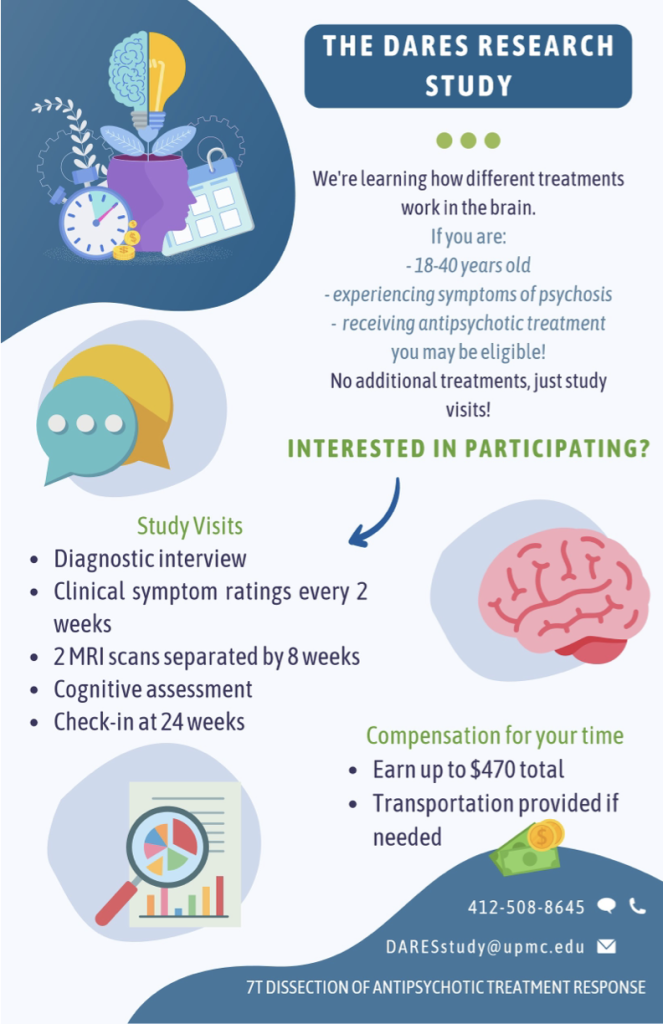A Multidimensional Dissection of Antipsychotic Treatment Response in Early Schizophrenia (DARES)
Schizophrenia spectrum disorders, among the most disabling of all psychiatric conditions, place a significant burden on the individuals who experience them, as well as their family members and society. Up to 35% of individuals with the disorders do not demonstrate an adequate response to antipsychotic treatment, and remain refractory to first-line therapies, which contributes to the burden and morbidity of the illness, often leaving patients unable to integrate with their communities.
There is currently a limited understanding of the neurobiological mechanism underlying successful or unsuccessful antipsychotic treatment, which hinders novel therapeutic development and optimization of our existing therapies for these disorders.
In this study, we use high-field, 7-Tesla neuroimaging to deconstruct the mechanism underlying antipsychotic response in a cohort of individuals with early schizophrenia who are acutely psychotic and starting antipsychotic treatment. This project focuses on the cortical-basal ganglia system with several innovative approaches:
(1) neuromelanin-sensitive MRI,
(2) magnetic resonance spectroscopic imaging (MRSI) of cortical/subcortical GABA and glutamate concentrations
(3) both hypothesis and data-driven multivariate approaches to cortico-basal ganglia functional connectivity.
Results of this work will provide a more comprehensive foundation for our understanding of antipsychotic treatment-related neurobiology, which will facilitate biomarker development, mechanistic clinical trials, and the development of next-generation therapeutic strategies.
If you're interested in participating in this study, visit our Pitt+Me page, or email us directly:
DARESstudy@upmc.edu
Pitt+Me ~ 7T Dissection of Antipsychotic Treatment Response - Diagnosed Population (pittplusme.org)

